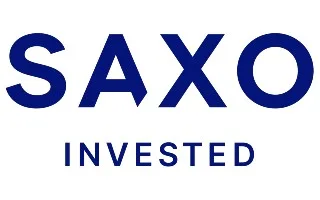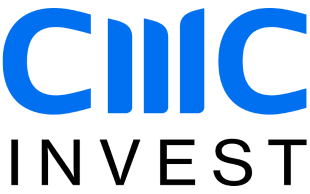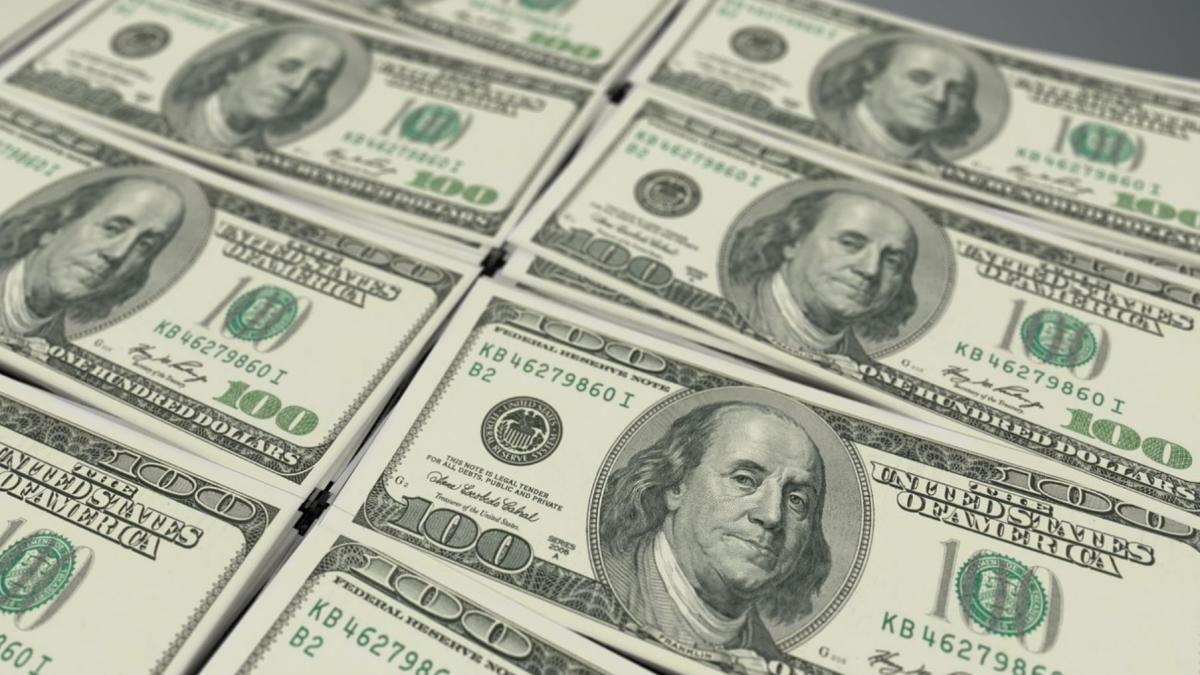$75.11
Alibaba.com is a Chinese multinational technology conglomerate with investments and products related to ecommerce, AI and Internet services. Founded in 1999, Alibaba is also known for hosting the largest ecommerce marketplaces in the world: Alibaba.com, Taobao and Tmall. Alibaba is headed by founder Jack Ma, who named the company after the character, Ali Baba, in the well-known folktale collection One Thousand and One Nights.
How to buy shares in Alibaba
- Compare share trading platforms. To buy shares in a company listed in the US from Australia you'll need to find a trading platform that offers access to US stock markets. Look for a platform with low brokerage and foreign exchange fees.
- Open and fund your brokerage account. Complete an application with your personal and financial details, which will typically include your ID and tax file number. Fund your account with a bank transfer, credit card or debit card.
- Search for Alibaba. Find the share by name or ticker symbol: BABA. Research its history to confirm it's a solid investment that matches your financial goals.
- Purchase now or later. Buy today with a market order or use a limit order to delay your purchase until Alibaba reaches your desired price. To spread out your risk, look into dollar-cost averaging, which smooths out buying using consistent intervals and amounts.
- Decide on how many to buy. At last close price of US$74.63, weigh your budget against a diversified portfolio that can minimise risk through the market's ups and downs. You may be able to buy a fractional share of Alibaba, depending on your broker.
- Check in on your investment. Congratulations, you own a part of Alibaba. Optimise your portfolio by tracking how your stock — and even the business — performs with an eye on the long term. You may be eligible for dividends and shareholder voting rights.
Our top pick for
US stocks

Our top pick for
Best for beginner

Our top pick for
Dividend investing

Alibaba stock price (NYSE:BABA)
Use our graph to track the performance of BABA stocks over time.Alibaba shares at a glance
| Open | US$73.805 |
|---|---|
| High | US$75.2 |
| Low | US$73.805 |
| Close | US$75.11 |
| Previous close | US$74.63 |
| Change | US$0.48 |
| Change % | 0.6432% |
| Volume | 11,693,653 |
| 52-week range | US$66.63 - US$101.1404 |
|---|---|
| 50-day moving average | US$73.0796 |
| 200-day moving average | US$80.652 |
| Target price | US$106.37 |
| PE ratio | 13.5787 |
| Dividend yield | US$6.869 (1.38%) |
| Earnings per share (TTM) | US$5.34 |
Use the fields above to explore the returns from a historical investment. Please refer to the charts further up this page to see performance over 5 years, or other periods. Past performance doesn't indicate future results. Capital is at risk.
Alibaba price performance over time
Historical closes compared with the last close of $75.11
| 1 week (2024-04-19) | 8.74% |
|---|---|
| 1 month (2024-03-26) | 5.08% |
| 3 months (2024-01-26) | 1.49% |
| 6 months (2023-10-26) | -8.97% |
| 1 year (2023-04-25) | -9.42% |
|---|---|
| 2 years (2022-04-25) | -12.50% |
| 3 years (2021-04-26) | -67.72% |
| 5 years (2019-04-26) | -59.85% |
Compare trading platforms to buy Alibaba shares
Is it a good time to buy Alibaba stock?
The technical analysis gauge below displays real-time ratings for the timeframes you select. However, this is not a recommendation. It represents a technical analysis based on the most popular technical indicators: Moving Averages, Oscillators and Pivots. Finder might not concur and takes no responsibility.
Is Alibaba under- or over-valued?
Valuing Alibaba stock is incredibly difficult, and any metric has to be viewed as part of a bigger picture of Alibaba's overall performance. However, analysts commonly use some key metrics to help gauge the value of a stock.
Alibaba's P/E ratio
Alibaba's current share price divided by its per-share earnings (EPS) over a 12-month period gives a "trailing price/earnings ratio" of roughly 14x. In other words, Alibaba shares trade at around 14x recent earnings.
That's relatively low compared to, say, the trailing 12-month P/E ratio for the NASDAQ 100 at the end of 2019 (27.29). The low P/E ratio could mean that investors are pessimistic about the outlook for the shares or simply that they're under-valued.
Alibaba's PEG ratio
Alibaba's "price/earnings-to-growth ratio" can be calculated by dividing its P/E ratio by its growth – to give 0.5506. A low ratio can be interpreted as meaning the shares offer better value, while a higher ratio can be interpreted as meaning the shares offer worse value.
The PEG ratio provides a broader view than just the P/E ratio, as it gives more insight into Alibaba's future profitability. By accounting for growth, it could also help you if you're comparing the share prices of multiple high-growth companies.
Alibaba's EBITDA
Alibaba's EBITDA (earnings before interest, taxes, depreciation and amortisation) is US$181.7 billion (£145.3 billion).
The EBITDA is a measure of a Alibaba's overall financial performance and is widely used to measure stock profitability.
Alibaba share price volatility
Over the last 12 months, Alibaba's shares have ranged in value from as little as US$66.63 up to US$101.1404. A popular way to gauge a stock's volatility is its "beta".
Beta measures a share's volatility in relation to the market. The market (NYSE average) beta is 1, while Alibaba's is 0.46. This would suggest that Alibaba's shares are less volatile than average (for this exchange).
Alibaba financials
| Revenue TTM | US$927.5 billion |
|---|---|
| Operating margin TTM | 11.91% |
| Gross profit TTM | US$314.4 billion |
| Return on assets TTM | 4.43% |
| Return on equity TTM | 8.21% |
| Profit margin | 10.81% |
| Book value | 404.236 |
| Market capitalisation | US$176.5 billion |
TTM: trailing 12 months
Alibaba share dividends
Dividend payout ratio: 2.16% of net profits
Recently Alibaba has paid out, on average, around 2.16% of net profits as dividends. That has enabled analysts to estimate a "forward annual dividend yield" of 1.38% of the current stock value. This means that over a year, based on recent payouts (which are sadly no guarantee of future payouts), Alibaba shareholders could enjoy a 1.38% return on their shares, in the form of dividend payments. In Alibaba's case, that would currently equate to about $6.869 per share.
While Alibaba's payout ratio might seem low, this can signify that Alibaba is investing more in its future growth.
Alibaba's most recent dividend payout was on 17 January 2024. The latest dividend was paid out to all shareholders who bought their shares by 19 December 2023 (the "ex-dividend date").
Alibaba's environmental, social and governance track record
Environmental, social and governance (known as ESG) criteria are a set of three factors used to measure the sustainability and social impact of companies like Alibaba.
When it comes to ESG scores, lower is better, and lower scores are generally associated with lower risk for would-be investors.
Alibaba's total ESG risk score
Total ESG risk: 28.21
Socially conscious investors use ESG scores to screen how an investment aligns with their worldview, and Alibaba's overall score of 28.21 (as at 12/31/2018) is pretty good – landing it in it in the 37th percentile of companies rated in the same sector.
ESG scores are increasingly used to estimate the level of risk a company like Alibaba is exposed to within the areas of "environmental" (carbon footprint, resource use etc.), "social" (health and safety, human rights etc.), and "governance" (anti-corruption, tax transparency etc.).
Alibaba's environmental score
Environmental score: 4.34/100
Alibaba's environmental score of 4.34 puts it squarely in the 4th percentile of companies rated in the same sector. This could suggest that Alibaba is a leader in its sector terms of its environmental impact, and exposed to a lower level of risk.
Alibaba's social score
Social score: 15.2/100
Alibaba's social score of 15.2 puts it squarely in the 4th percentile of companies rated in the same sector. This could suggest that Alibaba is a leader in its sector when it comes to taking good care of its workforce and the communities it impacts.
Alibaba's governance score
Governance score: 10.67/100
Alibaba's governance score puts it squarely in the 4th percentile of companies rated in the same sector. That could suggest that Alibaba is a leader in its sector when it comes to responsible management and strategy, and exposed to a lower level of risk.
Alibaba's controversy score
Controversy score: 2/5
ESG scores also evaluate any incidences of controversy that a company has been involved in. Alibaba scored a 2 out of 5 for controversy – the second-highest score possible, reflecting that Alibaba has, for the most part, managed to keep its nose clean.
Environmental, social, and governance (ESG) summary
Alibaba Group Holding Ltd was last rated for ESG on: 2019-01-01.
| Total ESG score | 28.21 |
|---|---|
| Total ESG percentile | 36.84 |
| Environmental score | 4.34 |
| Environmental score percentile | 4 |
| Social score | 15.2 |
| Social score percentile | 4 |
| Governance score | 10.67 |
| Governance score percentile | 4 |
| Level of controversy | 2 |
Alibaba overview
Alibaba Group Holding Limited, through its subsidiaries, provides technology infrastructure and marketing reach to help merchants, brands, retailers, and other businesses to engage with their users and customers in the People's Republic of China and internationally. The company operates through seven segments: China Commerce, International Commerce, Local Consumer Services, Cainiao, Cloud, Digital Media and Entertainment, and Innovation Initiatives and Others. It operates Taobao, a digital retail platform; Tmall, a third-party online and mobile commerce platform; Alimama, a monetization platform; 1688.com and Alibaba.com, which are online wholesale marketplaces; AliExpress, a retail marketplace; Lazada, Trendyol, and Daraz that are e-commerce platforms; Freshippo, a retail platform for groceries and fresh goods; and Tmall Global, an import e-commerce platform. The company also operates Cainiao Network logistic services platform; Ele.me, an on-demand delivery and local services platform; Koubei, a restaurant and local services guide platform; and Fliggy, an online travel platform. In addition, it offers pay-for-performance, in-feed, and display marketing services; and Taobao Ad Network and Exchange, a real-time online bidding marketing exchange. Further, the company provides elastic computing, storage, network, security, database, big data, and IoT services; and hardware, software license, software installation, and application development and maintenance services. Additionally, it operates Youku, an online video platform; Quark, a platform for information search, storage, and consumption; Alibaba Pictures and other content platforms that provide online videos, films, live events, news feeds, literature, music, and others; Amap, a mobile digital map, navigation, and real-time traffic information app; DingTalk, a business efficiency mobile app; and Tmall Genie smart speaker. The company was incorporated in 1999 and is based in Hangzhou, the People's Republic of China.
Stocks similar to Alibaba
Alibaba in the news

15 Best Stocks Under $100 To Buy Now

ETFs in an Emerging Market: 10 Best ETFs To Buy

3 No-Brainer Stocks to Buy With $300 Right Now
Frequently asked questions
More guides on Finder
-
How to invest in the Sun Silver IPO
Everything we know about the Sun Silver IPO, plus information on how to buy in.
-
How to invest in the Tasmea Limited IPO
Everything we know about the Tasmea Limited IPO, plus information on how to buy in.
-
How to buy Far Northern Resources shares
Steps to owning and managing Far Northern Resources shares.
-
What are the best commodity ETFs on the ASX in 2024?
Commodity ETFs can be used to hedge against inflation. Here's what they do, why they should be on your watchlist and how they can help your portfolio.
-
Best performing stocks on the ASX in 2024 (Updated weekly)
Looking for the best performing stocks in Australia? We update this list weekly.
-
How to buy Gol Linhas Aereas Inteligentes SA ADR (GOL) shares in Australia
Steps to owning and managing Gol Linhas Aéreas Inteligentes SA shares from Australia.
-
Superhero review: ASX and US share trading app
Trade ASX stocks and ETFs with a $2 brokerage fee and a low minimum investment of just $10.
-
The cheapest ETFs on the ASX
These ETFs have the lowest fees on the market, but does that make them the best?
-
Alternatives to CommSec: 7 trading platforms to consider
You've heard of CommSec but how does it stack up to the likes of IG, CMC Invest and other players in the market?
-
Westpac Share Trading Account review
Westpac Share Trading allows you to take control of your investments. Find out if its right for you.
Ask a Question



I purchased some Alibaba shares through a Broker located in SIngapore who I have lost contact with(?) I have details of a registration of my shares but I want/need to confirm that the shares really exist in my name?? How do I got about proving this? Thank you
Hi Gazpat, this is quite a complex situation. I’m assuming here that you are an Australian resident and have purchased Alibaba stock using a Singaporean-registered stock broker that has now collapsed. Check first whether your broker has been acquired by another organisation – there will likely be news or a press release published online. If that’s the case, customer assets may have been transferred to a new broker. You can contact them for proof of ownership details.
If this fails, you can try contacting a share registration service. Share registration services or Transfer Agents keep records of stock ownership. This is where it gets complicated. Alibaba is listed as an ADS on the NYSE, which is presumably where you purchased them (as opposed to the Hong Kong exchange). Citibank appears to be Alibaba’s ADS depository and may have the records you need. The following contacts should help: Email: citiadr@citi.com and drbrokerservices@citi.com. Good luck.